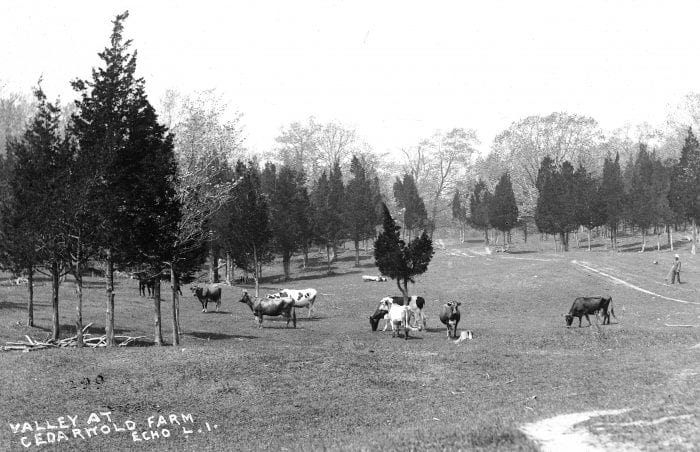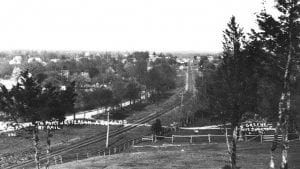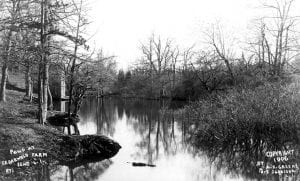Hometown History: Ebenezer Reeve and the Cedarwold Dairy Farm

Cedarwold Farm was a dairy that operated in Port Jefferson Station from 1892-1908.
The farm was located about one third of a mile west of today’s Port Jefferson Railroad Station, south of Sheep Pasture Road, in what was then called Echo.
The dairy included about 100 acres of pasture and 25 acres of woodland, fruit trees, a natural pond, an icehouse, a farmhouse, barns and outbuildings.
The property was comprised of two tracts: the Emmet B. Darling plot, purchased by Ebenezer Reeve in September 1892, and the Walter Jones parcel, bought by Reeve in April 1899.
Reeve was born in Laurel, New York, on May 8, 1851, and began farming at an early age. He married Sarah W. Torrey of nearby Mattituck in 1878; their daughter, Emma, was born the following year.

Photo by Arthur S. Greene, from the Kenneth C. Brady Digital Archive
Reeve came to Port Jefferson Station in 1886 and quickly became well known among its community members. Besides working as the overseer at Darling’s farm, Reeve also ran the dairy’s milk route, which put him in almost daily contact with local residents.
Following Darling’s death in 1887, Reeve leased the farm from the Darling estate, later purchasing the property from the guardian of Darling’s daughter. Now the owner of a dairy that he had managed for years, Reeve gave his property a distinctive name, Cedarwold Farm, the “wold” an English term for an open, hilly area.
Not limiting himself to dairying, Reeve grew potatoes and turnips at Cedarwold, harvested ice from its pond and took in boarders. He also rented portions of the farm to groups that held outdoor events on the property. The location was especially popular among officials of the Long Island Rail Road who traveled to Port Jefferson by train, capping their outings with clambakes at Cedarwold.
Active in local affairs, Reeve was a member of Port Jefferson Lodge No. 627, Independent Order of Odd Fellows, the Port Jefferson Presbyterian Church, the Echo Progressive Society and the Port Jefferson Gun Club. He had also served as a deputy sheriff in Echo and as a trustee of the Echo Public School.
Reeve died on June 7, 1908, and was buried in Port Jefferson’s Cedar Hill Cemetery. His widow later moved to Connecticut to live with her daughter, Mrs. John Bossen.

Cedarwold Farm was sold in 1910, changed hands several times over the years and had various uses. Portions of the property were once occupied by a sand mine, an asphalt plant, a turkey farm and a landscaping business, but more recently by now idle Lawrence Aviation Industries, a manufacturer of titanium sheeting for the aeronautics industry.
Reeves Road, which connects Port Jefferson’s Main Street with Sheep Pasture Road, is a reminder of Ebenezer Reeve, his idyllic farm and Long Island of yesteryear.
Kenneth Brady has served as the Port Jefferson Village Historian and president of the Port Jefferson Conservancy, as well as on the boards of the Suffolk County Historical Society, Greater Port Jefferson Arts Council and Port Jefferson Historical Society. He is a longtime resident of Port Jefferson.






